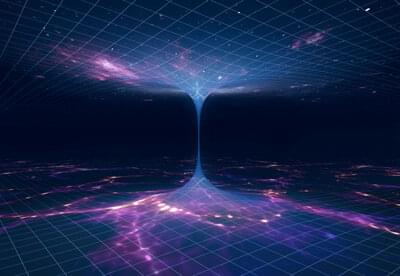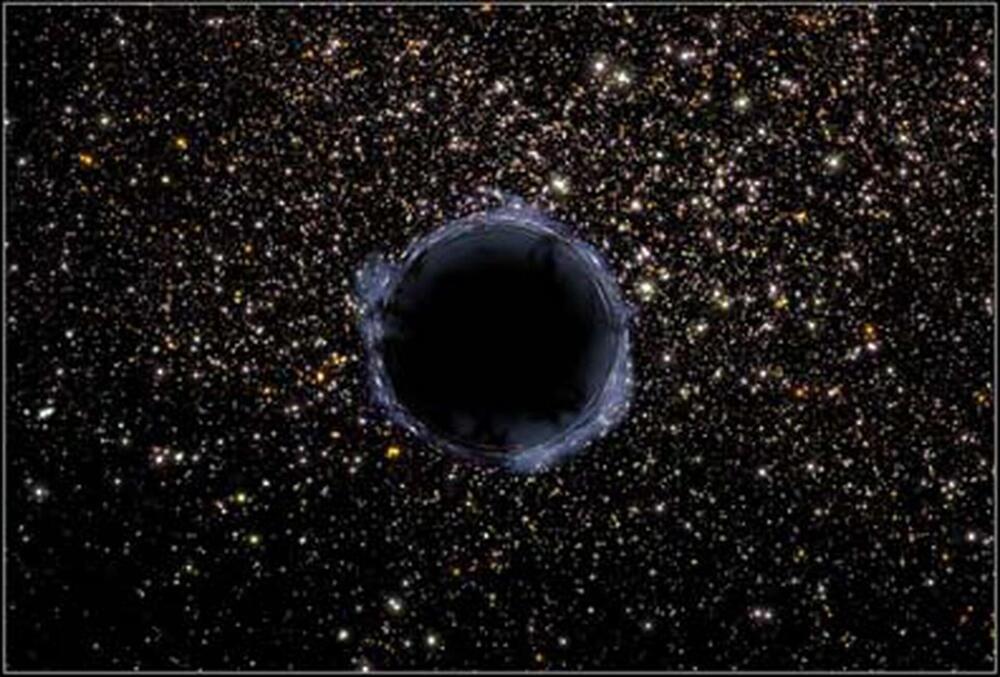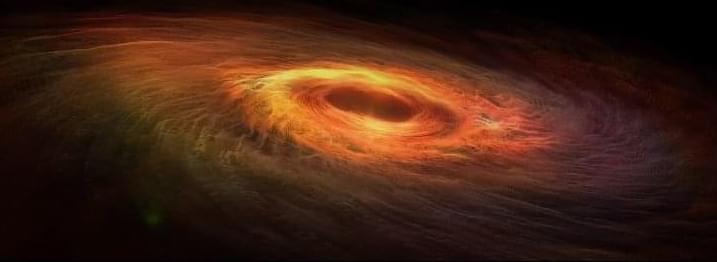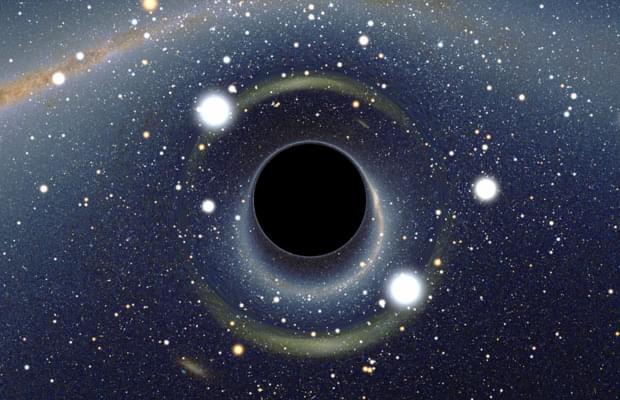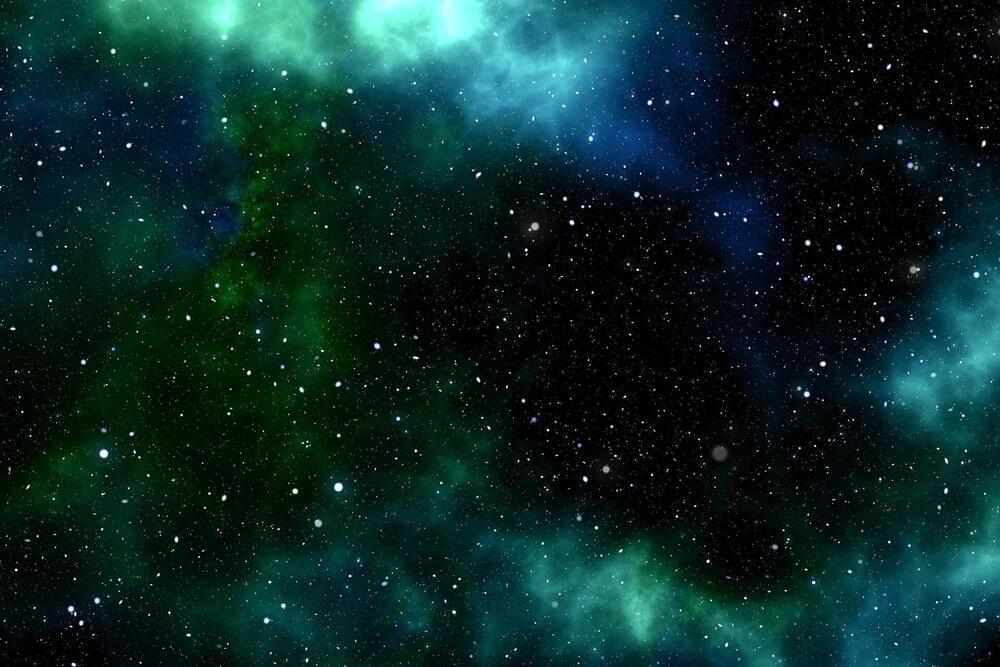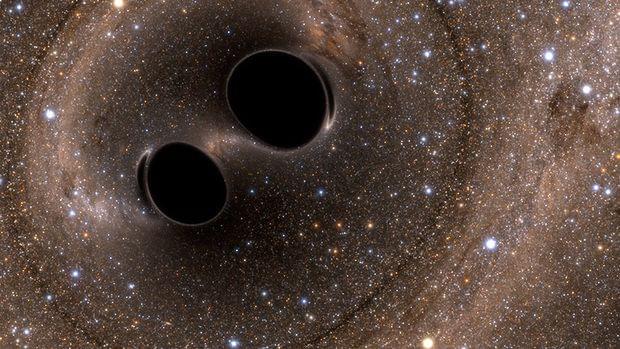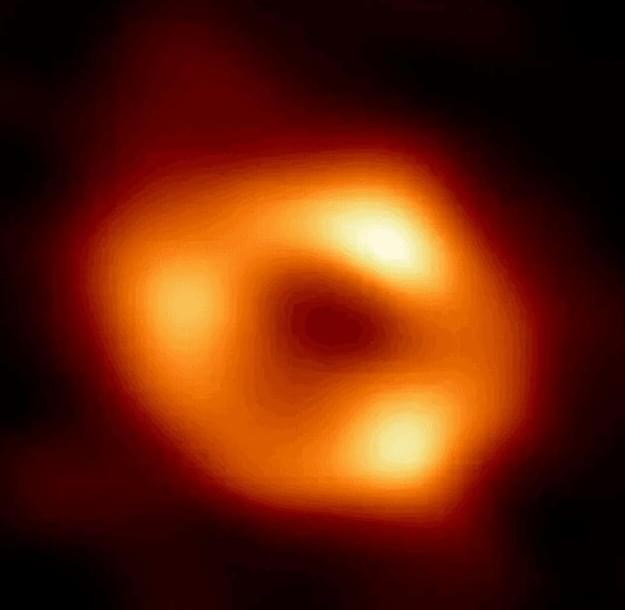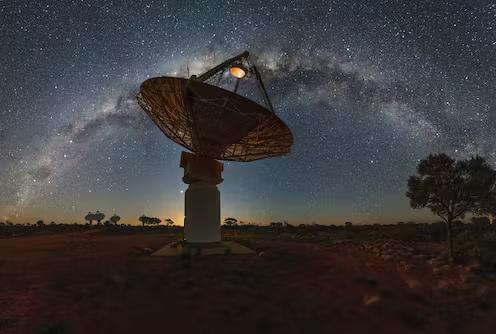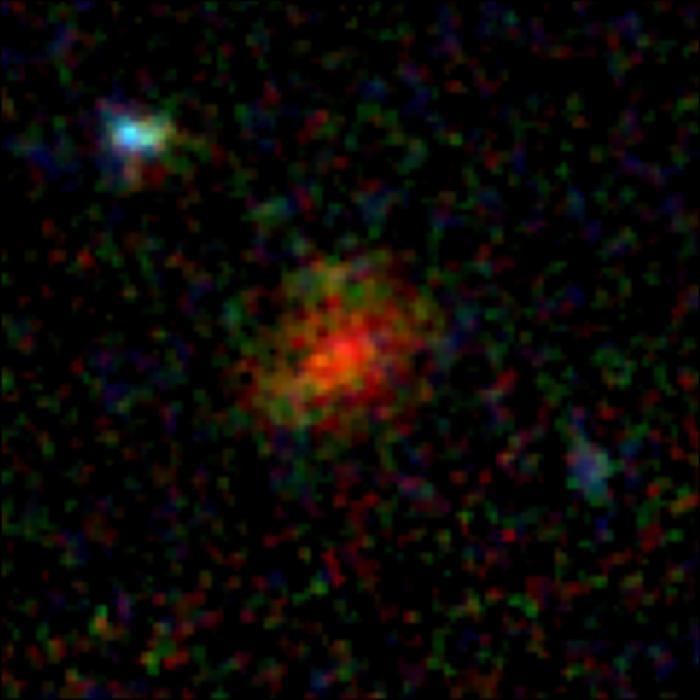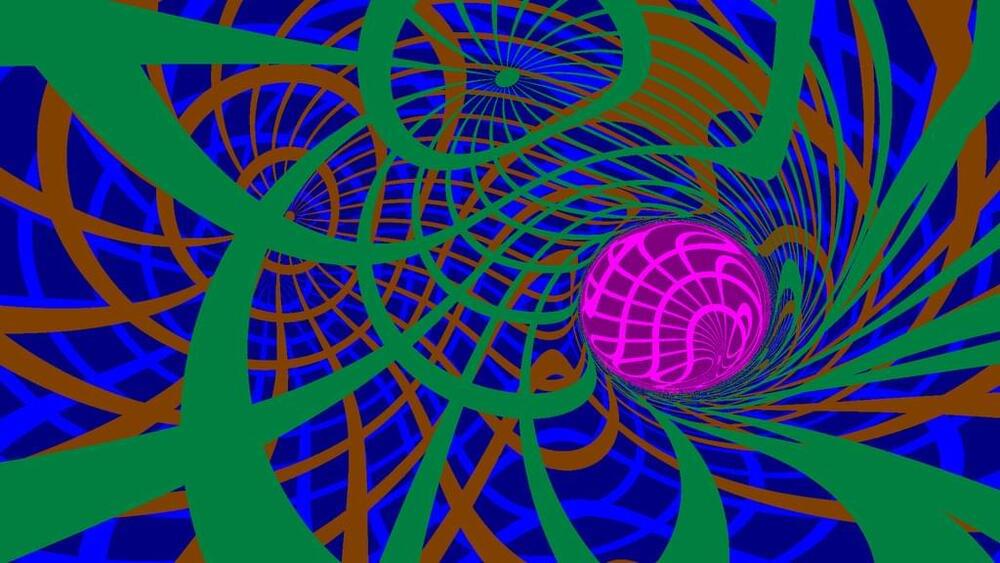Dec 7, 2023
Wormholes help resolve black hole information paradox
Posted by Dan Breeden in categories: cosmology, mathematics, quantum physics
A RIKEN physicist and two colleagues have found that a wormhole—a bridge connecting distant regions of the Universe—helps to shed light on the mystery of what happens to information about matter consumed by black holes.
Einstein’s theory of general relativity predicts that nothing that falls into a black hole can escape its clutches. But in the 1970s, Stephen Hawking calculated that black holes should emit radiation when quantum mechanics, the theory governing the microscopic realm, is considered. “This is called black hole evaporation because the black hole shrinks, just like an evaporating water droplet,” explains Kanato Goto of the RIKEN Interdisciplinary Theoretical and Mathematical Sciences.
This, however, led to a paradox. Eventually, the black hole will evaporate entirely—and so too will any information about its swallowed contents. But this contradicts a fundamental dictum of quantum physics: that information cannot vanish from the Universe. “This suggests that general relativity and quantum mechanics as they currently stand are inconsistent with each other,” says Goto. “We have to find a unified framework for quantum gravity.”
